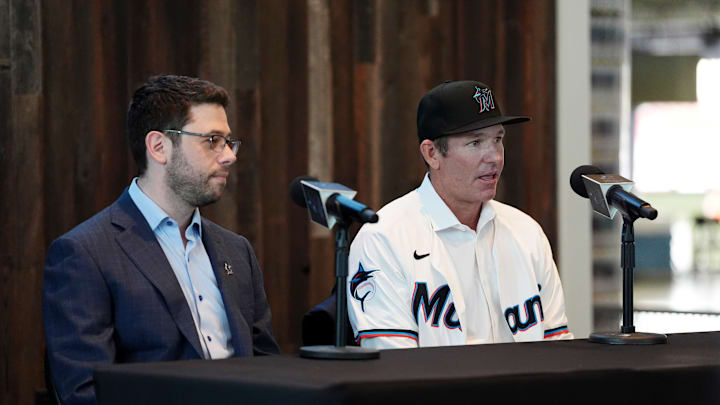The Miami Marlins organizational identity seems to be providing a massive, under-the-radar, advantage to the franchise. No, I don't mean their small market identity. Nor any of their ownership issues. Or even their habitual lack of on-field spending.
Early returns on the free-agent pitching market have made one thing abundantly clear: starting pitching is at a premium! Back-of-the-rotation players like Frankie Montas and Matthew Boyd both signed lucrative deals with an Average Annual Value of between $14 and $17 million.
This is a fascinatingly high price tag when you consider that Boyd has thrown less than 125 combined innings over the past three seasons, mostly due to injury limitations. Montas, on the other hand, pitched to a mediocre 4.84 ERA in stints with the Reds and Brewers last season. He also has injury concerns.
These early off-season deals will set a very SP-friendly market. Teams in need of rotation aid will have to pay a heavy price to rebuild through free agency.
So how does this market trend benefit the Miami Marlins?
For all of the organizational flaws that Miami carries, one thing is clear: They are elite at identifying and developing pitching. One could argue that the Marlins have been baseball's premier pitching development factory. At the very least, they are in the top tier alongside clubs like the Guardians, Brewers, and Dodgers.
Thankfully, this means that the Marlins should rarely find themselves in a position where they are forced to rely heavily on the free agency pool to fill their rotation spots. Imagine that the rival New York Mets had a reliable pipeline of young pitching. Having in-house options to fill the fourth or fifth rotation spot would have freed up $34 million for the club to invest in other areas. The same applies to the Cubs. Having a developed innings eater would allow Chicago to invest those funds in adding a much-needed bat to the middle of their lineup.
Unless something drastic changes, Peter Benix and the Marlins will spend the foreseeable future with a controlled payroll. However, having a slew of arms like Sandy Alcantara, Jesus Luzardo, Edward Cabrera, Braxton Garrett, and Ryan Weathers, compared with a reliable pipeline with talents like Thomas White, Noble Meyer, Robby Snelling, Adam Mazur, etc, will safeguard the Fish from becoming a victim of the inflated pitching market.
If Bendix and company play their cards right, they are as well equipped as any team in baseball to capitalize their cost-controlled arms and maximize every free agency dollar in building out a competent lineup and bullpen. They may never have a realistic chance to land a superstar like Juan Soto. However, their organizational identity should serve as a massive advantage in a sport where everyone is desperately trying to produce winning in the margins.
With any luck, Miami can play a modern-day version of Moneyball in 2025 and beyond!
